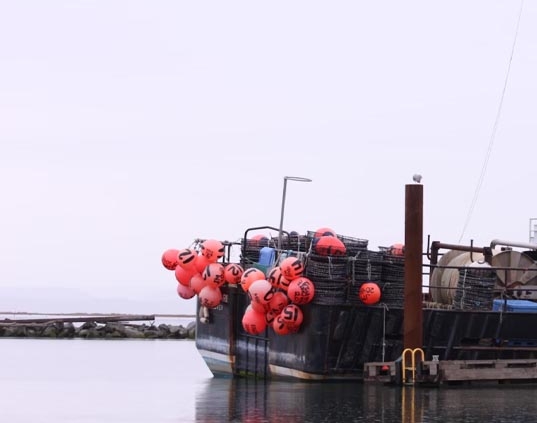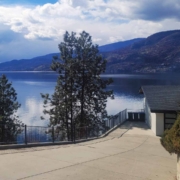Cowichan Tribes Land Ruling 2025 | Landmark Court Ruling Raises Questions About Property Rights in BC
On August 7, 2025, the BC Supreme Court issued a decision that could have wide-reaching implications for property ownership across the province. The case, Cowichan Tribes v. Canada (Attorney General), 2025 BCSC 1490, granted the Cowichan Tribes Aboriginal title over the historic Tl’uqtinus village on Lulu Island in Richmond, an area of approximately 1,846 acres, as well as fishing rights at the mouth of the Fraser River.
This marks one of the most significant Aboriginal title rulings since the 2014 Tsilhqot’in Nation decision. While it centres on land in Richmond, the ripple effects may extend throughout BC, including the Central Okanagan.
What the Court Decided in the Cowichan Tribes Land Ruling 2025
Justice Barbara Young found that:
- Crown transfers of land ownership and highway lands unjustifiably infringed the Cowichan Tribes’ title.
- Canada and Richmond’s fee simple titles in the affected lands were defective and invalid, except for lands tied to the Vancouver Airport Fuel Delivery Project.
- Both Canada and BC must now negotiate in good faith to reconcile fee simple interests with the Cowichan Tribes’ title, respecting the honour of the Crown.
The ruling is suspended for 18 months to allow for an “orderly transition” of lands.
The Province Responds
BC Attorney General Niki Sharma announced the Province will appeal the ruling, citing concerns about “significant unintended consequences for fee simple private property rights in BC.” The Province argues the decision did not strike the right balance between recognizing Aboriginal title and protecting innocent private landowners.
Until the appeal is heard, the situation remains in a state of flux.
Why This Matters for Homeowners and Buyers
Although the Cowichan Tribes case relates specifically to Richmond, the precedent it sets could influence how Aboriginal title claims are handled elsewhere in BC. For homeowners, developers, and buyers in the Central Okanagan, this raises key questions:
- Certainty of Title: Buyers expect confidence in their property rights when purchasing land. Any shift in how the title is recognized or transferred could introduce uncertainty.
- Future Land Claims: There are active and pending Aboriginal title claims across BC. This ruling highlights that historic claims may still have standing, even in urbanized areas.
- Market Confidence: Real estate values depend heavily on the security of ownership. Even the perception of risk can influence buyer sentiment, investment decisions, and long-term planning.
The Cowichan Tribes Land Ruling 2025 and What It Means for the Central Okanagan Real Estate Market
Here in the Okanagan, real estate is one of the most important sectors of the economy. While the Lulu Island lands are far from Kelowna, the case underscores the evolving relationship between private property rights and Indigenous land claims in BC.
In the Central Okanagan, where growth and development remain strong, buyers and sellers should stay informed about how these legal decisions could shape the future of land use and ownership. Realtors and brokerages, including our team at Hilbert&Crick, are watching closely to understand how rulings like this might affect transactions, development projects, and long-term property values.
Looking Ahead
The Province’s appeal means this case will likely remain tied up in the legal system for some time. For now, property owners can take some reassurance in the fact that private property rights remain protected while the courts work through the appeal process.
At Hilbert&Crick, we believe staying informed is essential to making confident real estate decisions. We’ll continue to monitor this case and share updates that matter to Okanagan homeowners, buyers, and investors.
Reach out to us if you’d like to learn more.
Frequently Asked Questions
1. What is the Cowichan Tribes land ruling 2025?
The 2025 BC Supreme Court decision granted the Cowichan Tribes Aboriginal title over historic lands on Lulu Island in Richmond, along with fishing rights at the Fraser River. It is considered one of the most significant Aboriginal title rulings since the Tsilhqot’in Nation in 2014.
2. Does the Cowichan Tribes land ruling affect private property owners in BC?
The ruling has raised concerns about fee simple property rights, since some Crown-granted titles were declared invalid. While the decision is currently under appeal, it has created questions about long-term certainty for property owners across the province.
3. How could this ruling impact the Central Okanagan real estate market?
While the lands in question are in Richmond, the precedent could influence future Aboriginal title claims in other regions, including the Okanagan. Buyers and investors may pay closer attention to title security and how legal decisions affect property rights.
4. Is my property at risk because of this decision?
At this stage, the ruling applies specifically to Lulu Island in Richmond and is under appeal. However, it highlights the importance of staying informed about Aboriginal title cases and understanding how they may shape property ownership in BC.
5. What should buyers and sellers do now?
For most transactions in the Central Okanagan, it’s business as usual. Working with an experienced REALTOR® ensures you are informed of any changes, legal developments, or risks that could affect property ownership in the future.









Leave a Reply
Want to join the discussion?Feel free to contribute!